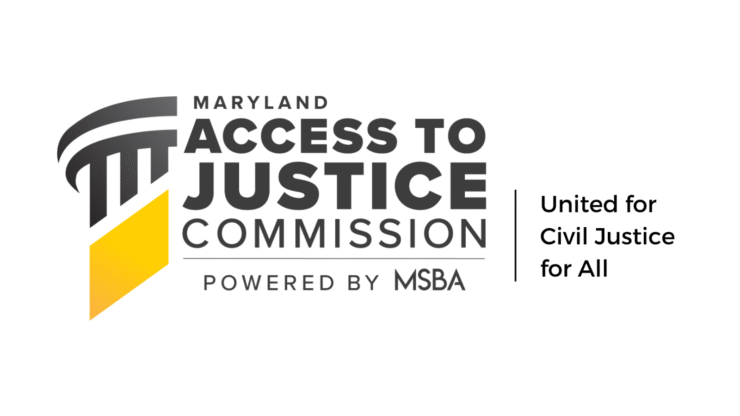Technologies Are Helping Bridge the Access to Justice Gap

The Innovations in Tiered Legal Services Task Force, a joint initiative of the Maryland Judiciary, the MSBA, and the Maryland Access to Justice Commission, is leading the charge to tackle Maryland’s civil justice gap. The task force aims to meet the civil legal needs of the hundreds of thousands of Marylanders who are currently going unserved by attorneys. To achieve this, it is exploring a nationwide movement to create new tiers within the legal profession that employ both allied legal professionals and legal technology to provide civil legal help to those who cannot afford or access a traditional attorney.
How Technology is Helping
The access to justice gap is often a result of high legal costs, geographical barriers, and a lack of legal aid resources. To combat this, organizations and courts are moving their services online and providing user-friendly resources that allow people to navigate legal issues on their own. Legal technology is playing an increasingly vital role in addressing the inability of many people, particularly those from underserved communities, to afford or access legal services.
A look at legal technology in other states is illustrative of how such tools could help increase access to justice in Maryland. For example, in Florida, the Eleventh Judicial Circuit developed SOFIA (South Florida Interactive Access) for those who wish to use the Eleventh Judicial Circuit’s Family Court Self-Help Program for simple divorces and adult name changes. With SOFIA, these individuals can reduce the time and effort it takes to file these self-help forms. Now they may request their simple divorce or adult name-change packet by email or online chat with a Self Help staff member, then they can register to use SOFIA, where an assisted document creator app will gather the information needed for the forms by asking them interactive questions online.
Further, largely due to the COVID-19 pandemic, courts are now using remote and hybrid hearings in all 50 states for both civil and criminal case types, according to the National Center for State Courts (NCSC), a group committed to driving innovation and progress in the courts and justice system.
The ability of self-represented litigants to access a courtroom remotely, without having to travel, is helping low-income people cut down on the costs involved in accessing the justice system.
With the help of NCSC’s Hybrid Hearing Improvement Initiative, technology companies have equipped courts in 28 states and two territories with the technology to help increase access to justice for low-income people going through the court system.
Other nonprofit organizations have taken the initiative to develop free online tools to help increase access to justice for low-income litigants. Upsolve, one such tool, allows people contemplating filing for bankruptcy to create an online account where they complete a questionnaire asking them about their financial situation. After completing the questionnaire, users then take an hour-long, for-credit online course. The computer software then generates the proper form for users to file in bankruptcy court. Lastly, users will have a meeting with a bankruptcy trustee who will ask questions about the forms. If all goes well, in a few months, users will be informed that their debt has been canceled.
The Massachusetts Defense for Eviction (MADE) is another tool helping those access the justice system without a lawyer. MADE, a free online platform, helps tenants in Massachusetts who are self-represented in eviction cases by preparing the seven forms they need for the hearing.
MADE works like an online interview. It asks for a person’s information, his or her landlord, and the nature of the eviction case. The answers to the questions will generate a legal document; then the person will sign the document and file it with the court, according to the Massachusetts Defense For Eviction website.
Artificial intelligence is proving to be a game-changer for legal aid providers as well, and has the potential to scale solutions and dramatically improve efficiency. Some legal aid organizations have developed AI chatbots to assist with simple legal intake, freeing up staff to handle more complex cases. For example, Legal Aid of North Carolina built an AI chatbot named LIA to provide actionable resources for simple legal matters, like landlord-tenant disputes. This tool provides quick, on-demand legal advice and helps users identify their legal issues. It also guides them to the most relevant resources or connects them with licensed professionals.
Gaining Interest for Similar Efforts in Maryland
Maryland is already a national leader in certain areas of legal tech, and the A2JC is working to build on this. The Innovations in Tiered Legal Services Task Force is actively studying how other states are using technology to help people resolve their civil legal problems without an attorney. Housed in the A2JC’s Data & Legal Technology Committee and the Innovations in Tiered Legal Services Task Force Legal Technology Committee, this initiative is a vital step toward creating a more equitable legal system for all Marylanders. The ultimate goal is to ensure that every Marylander has access to the legal help they need, and technology is proving to be an indispensable tool in achieving that goal.